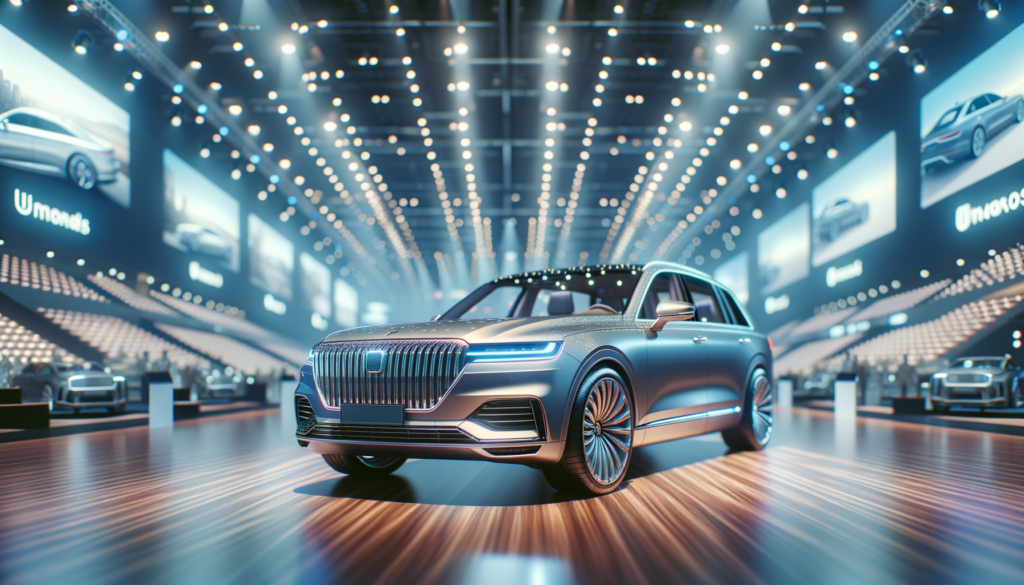The Finance & Investing Blog

The Evolution of Cars: A Historical Perspective
Cars have been an integral part of modern society, revolutionizing the way we travel and live. The history of cars dates back to the late 19th century when the first gasoline-powered vehicles were developed. These early automobiles were a far cry from the sophisticated machines we see today, but they laid the foundation for a transportation revolution.
The introduction of assembly line production by a major car manufacturer in the early 20th century was a pivotal moment, making cars more affordable and accessible to the general public. This innovation not only changed the automotive industry but also had a profound impact on the economy and society as a whole.
Over the decades, cars have evolved in design, performance, and technology. From the classic muscle cars of the 1960s to the sleek, high-tech vehicles of today, the automotive industry has continuously pushed the boundaries of innovation. This evolution reflects not only technological advancements but also changes in consumer preferences and environmental considerations.
- Early innovations: Steam-powered vehicles
- Gasoline engines and the rise of mass production
- The golden age of muscle cars
- Modern advancements in hybrid and electric vehicles
Technological Advancements in Modern Cars
Today’s cars are marvels of engineering, equipped with cutting-edge technology that enhances safety, performance, and convenience. The integration of advanced electronics and software has transformed the driving experience, making cars smarter and more efficient.
One of the most significant technological advancements in recent years is the development of autonomous vehicles. These self-driving cars use a combination of sensors, cameras, and artificial intelligence to navigate roads and traffic without human intervention. While fully autonomous vehicles are still in the testing phase, they hold the potential to revolutionize transportation by reducing accidents and improving traffic flow.
In addition to autonomy, connectivity is another key feature of modern cars. Infotainment systems, GPS navigation, and smartphone integration have become standard, providing drivers with a seamless and connected experience. Furthermore, advancements in safety technology, such as adaptive cruise control and automatic emergency braking, have made driving safer than ever before.
- Autonomous driving technology
- Connectivity and infotainment systems
- Advanced safety features
- Electric and hybrid powertrains
Environmental Impact and Sustainability
The environmental impact of cars has been a growing concern, prompting the automotive industry to focus on sustainability and eco-friendly solutions. Traditional gasoline-powered vehicles contribute significantly to air pollution and greenhouse gas emissions, leading to efforts to develop cleaner alternatives.
Electric vehicles (EVs) have emerged as a promising solution, offering zero emissions and reduced dependence on fossil fuels. The adoption of EVs has been supported by government incentives and the expansion of charging infrastructure, making them a viable option for environmentally conscious consumers.
In addition to EVs, hybrid vehicles that combine gasoline engines with electric motors have gained popularity. These vehicles offer improved fuel efficiency and lower emissions, serving as a transitional step toward a more sustainable future.
The push for sustainability extends beyond powertrains. Manufacturers are increasingly using recycled materials in production and implementing energy-efficient manufacturing processes. These efforts reflect a broader commitment to reducing the environmental footprint of the automotive industry.
- Impact of gasoline vehicles on the environment
- Rise of electric and hybrid vehicles
- Government incentives and infrastructure development
- Sustainable manufacturing practices
The Future of Cars: Trends and Innovations
The future of cars is shaped by emerging trends and innovations that promise to redefine mobility. As technology continues to advance, the automotive industry is poised for transformative changes that will impact how we drive and interact with vehicles.
One of the most exciting trends is the development of smart cities, where connected vehicles communicate with infrastructure to optimize traffic flow and reduce congestion. This concept, known as Vehicle-to-Everything (V2X) communication, aims to create a seamless and efficient transportation ecosystem.
Another trend is the shift toward shared mobility. Car-sharing services and ride-hailing platforms are becoming increasingly popular, offering convenient and cost-effective alternatives to car ownership. This shift is driven by changing consumer preferences and the desire for flexible transportation options.
Innovation in materials and design is also expected to play a crucial role in the future of cars. Lightweight materials, such as carbon fiber and aluminum, are being used to improve fuel efficiency and performance. Additionally, advancements in battery technology are set to extend the range and reduce the charging time of electric vehicles.
- Development of smart cities and V2X communication
- Rise of shared mobility services
- Advancements in lightweight materials
- Future of battery technology
Conclusion: Navigating the Road Ahead
The world of cars is dynamic and ever-changing, driven by technological advancements, environmental considerations, and evolving consumer preferences. From the historical evolution of automobiles to the cutting-edge innovations of today, cars continue to play a vital role in shaping our lives and society.
As we look to the future, the automotive industry faces both challenges and opportunities. The push for sustainability, the rise of autonomous technology, and the shift toward shared mobility are just a few of the trends that will influence the direction of the industry.
For consumers, staying informed about these developments is crucial for making informed decisions about vehicle ownership and usage. Whether it’s choosing an eco-friendly electric vehicle or exploring the possibilities of autonomous driving, the future of cars offers exciting possibilities for a more connected and sustainable world.
As we navigate the road ahead, embracing innovation and sustainability will be key to ensuring that cars continue to be a force for progress and positive change.









